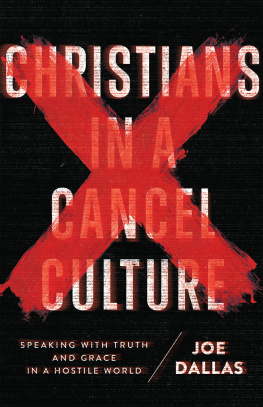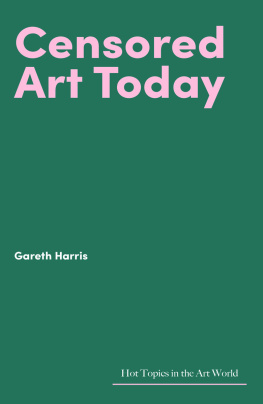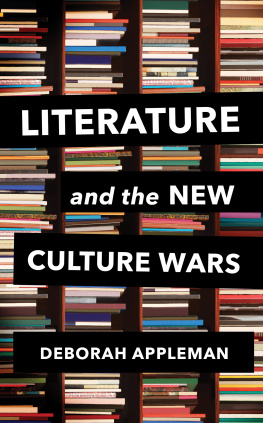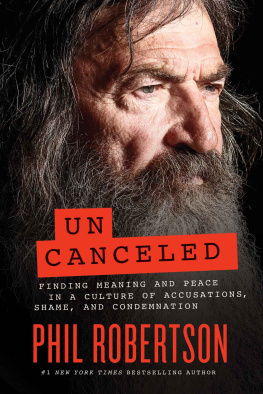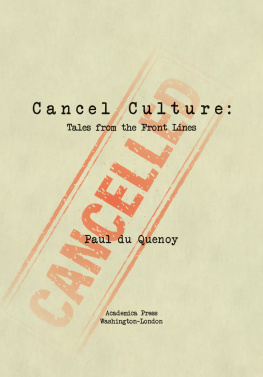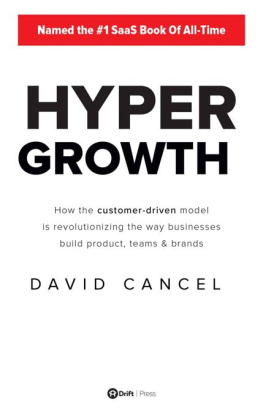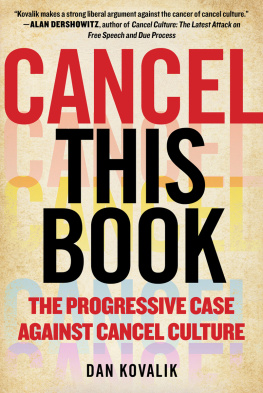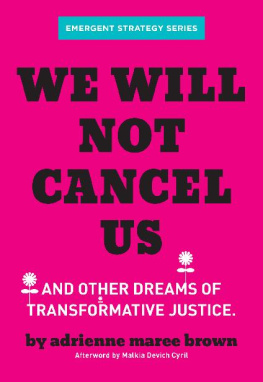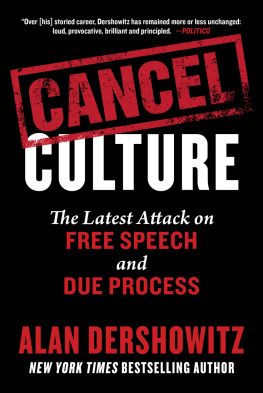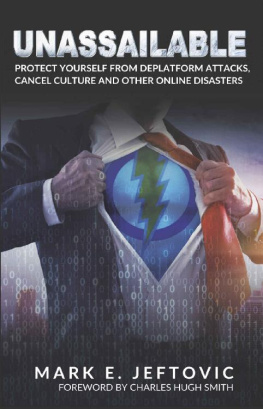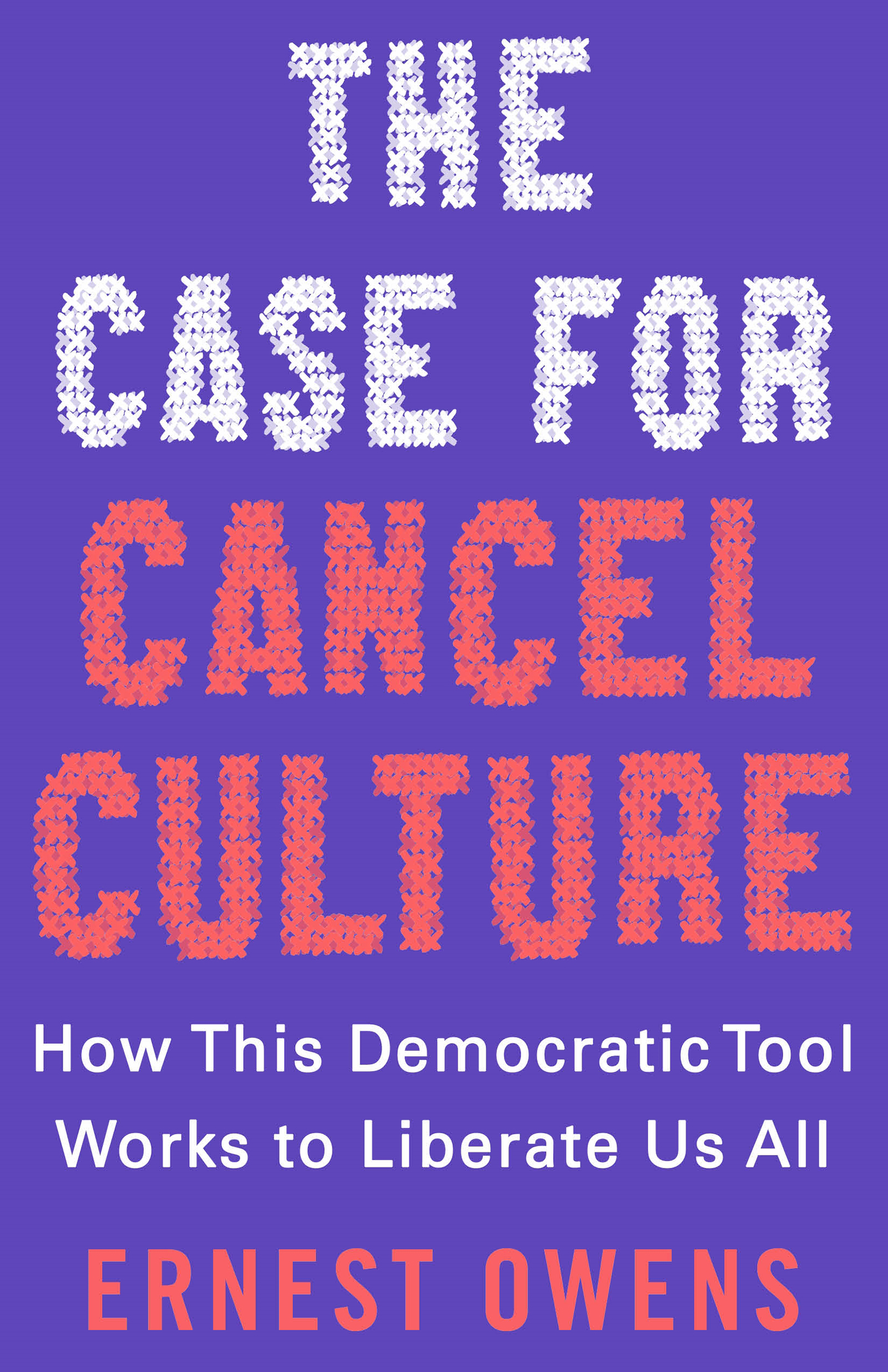Ernest Owens - The Case for Cancel Culture: How This Democratic Tool Works to Liberate Us All
Here you can read online Ernest Owens - The Case for Cancel Culture: How This Democratic Tool Works to Liberate Us All full text of the book (entire story) in english for free. Download pdf and epub, get meaning, cover and reviews about this ebook. year: 2023, publisher: St. Martins Publishing Group, genre: Politics. Description of the work, (preface) as well as reviews are available. Best literature library LitArk.com created for fans of good reading and offers a wide selection of genres:
Romance novel
Science fiction
Adventure
Detective
Science
History
Home and family
Prose
Art
Politics
Computer
Non-fiction
Religion
Business
Children
Humor
Choose a favorite category and find really read worthwhile books. Enjoy immersion in the world of imagination, feel the emotions of the characters or learn something new for yourself, make an fascinating discovery.

- Book:The Case for Cancel Culture: How This Democratic Tool Works to Liberate Us All
- Author:
- Publisher:St. Martins Publishing Group
- Genre:
- Year:2023
- Rating:3 / 5
- Favourites:Add to favourites
- Your mark:
The Case for Cancel Culture: How This Democratic Tool Works to Liberate Us All: summary, description and annotation
We offer to read an annotation, description, summary or preface (depends on what the author of the book "The Case for Cancel Culture: How This Democratic Tool Works to Liberate Us All" wrote himself). If you haven't found the necessary information about the book — write in the comments, we will try to find it.
Refinery 29s Most Anticipated Books By Black & Latine Authors in 2023!
Philadelphia Inquirers Best New Books for February!
A necessary discourse about power and control, and who ultimately has a voice versus whose is often stifled. Preston D. Mitchum, LGBTQIA attorney, activist, and adjunct professor of law at Georgetown University
The first major case for cancel culture as a fundamental means of democratic expression throughout history, and timely necessity aimed at combating systems of oppression.
___ is canceled.
Chances are, youve heard this a lot lately. What mightve once been a niche digital term has been legitimized in the discourse of presidents, politicians, and lawmakers.
But what really is cancel culture? Blacklisting celebrities? Censorship? Until now, this has been the general consensus in the media. But its time to raise the bar on our definition to think of cancel culture less as scandal or suppression, and more as an essential means of democratic expression and accountability.
The Case for Cancel Culture does just that. This cultural critique from 2023 Philly News Award-Winning journalist Ernest Owens offers a fresh progressive lens in favor of cancel culture as a tool for activism and change. Using examples from politics, pop culture, and his own personal experience, Owens helps readers reflect on and learn the long history of canceling (spoiler: the Boston Tea Party was cancel culture); how the left and right uniquely equip it as part of their political toolkits; how intersections of society wield it for justice; and ultimately how it levels the playing field for the everyday persons voice to matter.
Why should we care? Because in a world where protest and free speech are being challenged by the most powerful institutions, those without power deserve to understand the nuance and importance of this democratic tool available to them. Readers will walk away from this first-of-its-kind exploration not despising cancel culture but embracing it as a form of democratic expression thats always been leading the charge in liberating us all.
Journalist Owens debuts with an incisive defense of cancel culture... his arguments are thought-provoking and well supported. The result is an invigorating survey of a hot-button political issue.Publishers Weekly
An important tool for all times, and for anyone looking to learn how to have the difficult but necessary conversations about race, injustice, inequality, and oppression. Dawn Ennis, award-winning journalist, advocate, and university professor
Ernest Owens: author's other books
Who wrote The Case for Cancel Culture: How This Democratic Tool Works to Liberate Us All? Find out the surname, the name of the author of the book and a list of all author's works by series.


